|
In recent years, we’ve seen a tremendous uptick in patients calling our Fitchburg, MA acupuncture clinic to ask, “does acupuncture work for anxiety?” The truth is, more people are struggling with their mental health than ever before, and wait times for an appointment with traditional talk therapists are longer than ever.
Acupuncture is very helpful in reducing symptoms of anxiety, in some very unique ways. If you are looking for safe, effective, natural remedies for anxiety that don’t involve prescription medication, read on. One way that acupuncture can help with anxiety is by reducing the activity of the sympathetic nervous system, which is responsible for the body's "fight or flight" response. When the sympathetic nervous system is overactive, it can lead to increased anxiety and other physical symptoms such as elevated heart rate, shallow breathing, and muscle tension. Acupuncture has been shown to stimulate the parasympathetic nervous system, which is responsible for the body's "rest and digest" response. This can help counteract the effects of the sympathetic nervous system, leading to a reduction in anxiety and its related symptoms. Acupuncture may also help to regulate the levels of certain neurotransmitters in the brain, including serotonin and dopamine, which are associated with mood and feelings of well-being. By increasing the release of these neurotransmitters, acupuncture may help to reduce feelings of anxiety and promote a greater sense of calm and relaxation. In addition, acupuncture may help to reduce inflammation in the body, which has been linked to the development of anxiety and other mental health conditions. By reducing inflammation, acupuncture may help to improve overall mental and physical health, which can contribute to a reduction in anxiety symptoms. The simple act of coming in for an acupuncture appointment is, in and of itself, profoundly relaxing! (Yes, even though there are needles involved.) For most people, there aren’t many other times during the week where there’s an hour set aside, just for you, in a tranquil environment, where you can just rest and be free of any demands and distractions. Finally, acupuncture is a modality that is absolutely safe and appropriate to integrate and combine with any other support you may be receiving for anxiety, whether that may be talk therapy, EMDR, medications, hypnosis, etc. It’s free of dangerous side effects, non-habit forming, and actually very enjoyable, so why not try acupuncture today?
0 Comments
It’s only Tuesday and this week alone, I have had 2 phone calls, 3 messages on social media, and someone who physically came into my office with a print out of both the home page of my website AND the Acupuncture page from Medicare.gov hoping to make an appointment to use Medicare benefits that allegedly cover Acupuncture.
Sadly, I had to tell each one of them that I would be unable to bill Medicare for my services, and that they would be very unlikely to be able to find a practitioner in our area that fits the criteria for Medicare reimbursement for Acupuncture services. Here’s why: At https://www.medicare.gov/coverage/acupuncture it states: Medicare Part B (Medical Insurance) covers up to 12 acupuncture visits in 90 days for chronic low back pain. Medicare covers an additional 8 sessions if you show improvement. If you aren't showing improvement, Medicare won't cover your additional treatments and they should be discontinued. You can get a maximum of 20 acupuncture treatments in a 12-month period. Unfortunately, it ALSO states: Not all providers can give acupuncture, and Medicare can't directly pay Licensed Acupuncturists for their services. Medicare also doesn't cover acupuncture (including dry needling) for any condition other than chronic low back pain. (You can check out the screen shot that accompanies this blog post, because prior to my chat with this customer service rep, this language was NOT on their website. You’re welcome and I’m sorry to be the bearer of bad news. Special thanks to Cindy who did indeed escalate the issue.) You must get acupuncture from a doctor, or by another healthcare provider (like a nurse practitioner or physician assistant) who has both of these: A masters or doctoral level degree in acupuncture or Oriental Medicine from a school accredited by the Accreditation Commission on Acupuncture and Oriental Medicine A current, full, active, and unrestricted license to practice acupuncture in the state where you're getting care The reasons for this are complex and have to do with bureaucratic red tape that may or may not be resolved in the next few years, but the bottom line is, Medicare patients are, by and large, unable to access their Acupuncture benefits, unless they can find an MD who is willing to bill Medicare, or an NP or PT who has ALSO graduated from an accredited Acupuncture college and maintains a full, active acupuncture license, and is willing to bill Medicare. If and when the situation changes, we will update this post, but at this time, Fitchburg Acupuncture does not and cannot bill Medicare for Acupuncture services of any kind. Please feel free to call Medicare, and your Senators & Reps to complain if this bothers you. Please do NOT be mean and hang up on me like the lady who called me around lunchtime on Monday. That hurt my feelings. My patients here in Central MA may not know this, but a few years ago, I worked with the Acupuncture Society of Massachusetts, where among other things, we fought very hard to mandate insurance coverage for acupuncture in the Commonwealth. We had a lobbyist, and we were constantly up on Beacon Hill meeting with legislators and testifying before the Joint Committee of Public Health or Ways & Means pleading our case.
At the time, Mass Health was incredibly frustrating to us, because while the policy SAID it covered acupuncture, they would only PAY medical doctors. Well friends, times, they are a-changin', and we are pleased to announce that Fitchburg Acupuncture now accepts Mass Health patients! If you are a Mass Health patient with "the blue card", you get 20 visits per year with no copay, so you can go right on ahead and click the "schedule now" button at the top of any page on this website! Hope to see you soon, we'll get you feeling better in no time. Read our previous post on MassHealth Acupuncture Coverage here! 4/23/2022 Virtual Hypnosis? How could that POSSIBLY be effective? I mean, it's not...right??Read NowWhen I first became a Hypnotherapist, there were a LOT of caveats and warnings from my instructors...some of them were wise and given from the voice of experience. For example: A Hypnotist is not a licensed mental health professional, and therefore should not be claiming that they diagnose, treat or cure any sort of mental health disorders. It’s important to have clear professional boundaries with clients, so probably don’t ask them out on dates or hire them to put a new roof on your house, in case it leaks later. There are even certain creepy scams out there that practitioners need to be aware of when potential clients call to book an appointment!
Others seemed a little silly and arbitrary…unnecessarily fear based if you will: “Don’t hypnotize anyone on a massage table because they might fall off! Don’t mix hypnosis and reiki. (WHY? Hypnosis and reiki are AWESOME! Can I get acupuncture at the same time TOO??) and the biggest warning of all was, “Don’t hypnotize people ONLINE.” Obviously, this was all PRE-pandemic. In March of 2020 when the whole world went into quarantine mode, and everyone was wondering what the future held, I was wondering too. I had been operating a multidisciplinary holistic clinic in the Boston area for years, and 3/4 of my patients in my busy practice were seeing me for acupuncture, something not easily delivered virtually. I knew I was going to have to do something radically different to keep the ship afloat. Many of my colleagues in the hypnosis world were in a bit of a tizzy at the thought of how to proceed. You see, we gain as much information from looking at our client’s physical presence as we do from talking to them or from reading their intake forms, so how on EARTH could we possibly continue to work if we couldn’t be physically present with people, especially when people are just falling off massage tables left and right?!? (I kid, I kid! THIS DOES NOT HAPPEN.) In all seriousness, it really created something of a controversy in a few arenas, and with nothing else to do for a couple of weeks, I grabbed my popcorn and watched the debate unfold on the interwebs. Not for long though, because…I’m a rule breaker. Thaaat’s right. Hey, listen, I love my work, I love my clients, and I love my family too. I needed to find a way to continue doing what I love, which just so happens to also provide for my family and helps people overcome their problems and change their lives in the process. Was I nervous about how it would work at first? Sure. I really like to provide a DELICIOUS in-person experience for people, so I wasn’t sure about this online stuff, but once I got a few sessions under my belt, I was SOLD. What I began to notice was that my clients were so much more relaxed, so very comfortable in their own environments, that it was even easier for them to drift even deeper into hypnosis, just as quickly, just as easily, as they had been able to do in my office. In fact, since they hadn’t had to waste their valuable time driving through traffic, looking for parking…heck, let’s back up a bit…they didn’t have to waste time looking for PANTS, so they were SO much less stressed about arriving to their appointment on time, that they were able to share with me what was really going on in their hearts and minds so very easily, that change became truly effortless! All the barriers were simply removed, just like that. Two years later, I am a Virtual Hypnotherapist, working primarily online, with people from all over the United States and beyond. I couldn’t be happier and I’m consistently blown away by how well this all works. So, what do you need to know, as a client, about virtual hypnosis? Make sure you have a comfortable, quiet place where you’ll be undisturbed for the duration of the session. If sitting in a chair, recliner, or on a sofa, make sure your head can be supported. I’ll often see a client’s head start flopping around about 15 minutes into a session as they begin to deeply relax, and while their subconscious mind IS getting the full benefit of the session, I find that these are the clients that mysteriously, go looking for their massage therapists to help them with their newly acquired neck pain right afterward! Headphones are strongly recommended for best sound quality, and if your WiFi connection is spotty, consider an ethernet cable to plug directly into your router. Pets LOVE to snuggle with their owners during hypnosis, but you know your pet best. Please make sure they will not be a distraction to the session. Your Hypnotherapist will want to be able to see you. It is not necessarily imperative that you see THEM, but please be prepared to have your camera on, and to be able to set your phone or laptop somewhere where you will be visible for the session. If you are the North Pond Hermit or a magical unicorn who has made it to 2022 without using Zoom yet, it’s a very good idea to download Zoom and practice with it a bit before your session. Your appointment time has been reserved especially for you, and we’d hate to waste it on pesky tech challenges! If you are truly struggling with technology, please let us know in advance of your session whenever possible. In short, Virtual / Online Hypnosis is AWESOME. I absolutely love it. It’s allowed me to connect with and change the lives of people all over the state, the country, and the world. It allows my clients to make permanent, profound, positive changes from the comfort and privacy of their own homes without having to struggle with traffic, parking, calculating travel times, brassieres, pants, or shoes. It saves energy, especially gasoline, which is at an all time high as I write this. Why not give it a try? You have nothing to lose except your undesired habits and limiting beliefs. My journey with Reiki began in 2020 during the pandemic lockdown. Like many other people, I found myself trapped in the house night after night drinking wine and watching Netflix. Something had to change…..my amazing wife suggested I take a Reiki class, (Thank You Allison!). After wisely taking her sage advice, I made the decision to take Reiki Level 1. Not in a million years did I ever imagine what a monumental impact this would have on my life. As I drove away after the first day of class, my eyes welled up with tears. I was not sad in any way, as these were cleansing tears. I was becoming “Matt 2.0” and was loving every minute of it. About 2 weeks after the class, I started to notice the large scale transitions. I started to no longer engage in things that did not serve a higher purpose such as drinking, staying up late, focusing on negative thought patterns etc. I also was now allowing myself to bring issues that I had buried deep in my subconscious to the surface so that I could confront them head on instead of stuffing it away. I was developing a “spiritual upgrade” that allowed me to have a more in depth understanding of how everything operates on a cosmic level. The concept of what I like to call “genuine gratitude” was beginning to resonate within me. I'm not talking about just being thankful for things but rather manifesting gratitude for ALL things and situations, pleasant and painful. It is through these negative experiences upon which we gain the most valuable knowledge! My dreams began becoming much more vivid and surreal. It was through these dreams that I realized I was on the correct path with this pursuit. I understood and accepted my “calling” as a healer and intuitively felt I could change people’s lives by using this gift of compassion known as Reiki. I am now a Reiki Master Teacher and I am so excited to teach anyone and everyone who is willing to learn. I guess my conclusion to all of this is once you are touched by Reiki you will never be the same….it is more than just a healing modality. It is a full spectrum way of life! Always in kindness, -Matthew Chalifoux, LMT, RMT Becoming a Reiki Master with my fellow students. The journey of a lifetime!
Growing up, my mother was always a heavy smoker, and her addiction to tobacco had a big impact on my health and environment. The whole house smelled of smoke. I was forever coming down with respiratory infections. On Saturdays, she’d throw me in the car for a drive to New Hampshire, where cigarettes were cheaper. Once, the coffee table caught fire from a faulty lighter! We didn’t have a lot of money back then, but cartons upon cartons of cigarettes were a TOP priority. I watched as her chain smoking drained her bank account and prematurely aged her skin. Today, she has COPD and 2 ground glass tumors in her lungs.
For a while in my career as an acupuncturist, I stopped taking on smoking cessation clients. I found it frustrating that seemingly every last one of them would come in for their appointments smelling of smoke, having had that One. Last. Cigarette. In the car on the way over. I had better luck with people coming off methadone than I did with smokers. I knew these people needed something more. Enter HYPNOSIS. Acupuncture provides a tremendous benefit on the physical level for smoking cessation and all sorts of addictive behaviors. It helps regulate the nervous system and calm cravings and irritability. What it can’t do, though, is change the subconscious mind. There is a physical element to tobacco / nicotine addiction, but there is a major psychological component to it as well. People have many triggers around emotional states and social situations that they use smoking to cope with. Hypnosis helps to completely reprogram the subconscious mind for success, and helps neutralize these triggers. Over the last couple of months, I have created a smoking cessation program like no other. Combining acupuncture, hypnosis, herbal and nutritional supplements, and MP3s for daily reinforcement and homework. You simply can’t find anything else like it, anywhere. Not local to Northern Worcester County? Can't travel? No worries! We can craft a customized virtual program to your individual needs. So, what would you do if you knew you couldn’t fail? Would you take immediate action and set yourself on a path of freedom from cigarette smoking? Book a consult today and find out if you're a candidate for our program.
The last couple of days my news feed has been filled with quips about Dr Jennifer Gunter’s Twitter thread warning women not to put garlic in their vaginas. Her book, The Vagina Bible is being released in August of 2019, and this Twitter thread got her a LOT of social media traction that will go a LONG way toward promoting her book launch.
Why? Well, first, because vaginas. Post something about glorious, magical vajayjays, and people are gonna click all over that ish. Second, the idea of garlic IN the vagina is pretty foreign to some people, particularly those people without vaginas who have never heard of this, so, shock value. Finally, there are a lot of people with vaginas who DO use this home remedy for yeast infections that are pretty staggered by her claim that this is a dangerous and ineffective practice. So, let’s examine her argument for #vaginaisanogarliczone
Garlic contains allicin, which gives it its antimicrobial properties. She states that allicin “MAY have antifungal properties” and that it has only been studied on “a dish of cells” (in vitro) and “not even in mice” (in vivo).
Actually, this is incorrect. Allicin to treat Candida Albicans has indeed been studied in vivo, with promising results. What many people don’t understand, is that in the world of research, it’s all about FUNDING. To get funding for clinical research, you need to write a compelling grant proposal to whatever entity has the money. No one is likely to get rich off garlic-based vag cream, so the smaller than ideal pool of clinical research studies really doesn’t surprise me. Here’s a study you can take a look at though: Comparison between efficacy of allicin and fluconazole against Candida albicans in vitro and in a systemic candidiasis mouse model. “A time-kill study showed a significant effect of allicin (P<0.01) against C. albicans, comparable to that of fluconazole.” “These results demonstrate the efficacy of anticandidal effects of allicin both in vitro and in an animal model of candidiasis and affirm the potential of allicin as an adjuvant therapy to fluconazole.”
”Lots of vaginal garlic aficionados recommend inserting a clove. This means they don’t understand for allicin to be released, the garlic has to be cut or crushed. Sigh”
Wait, what? We...we don’t?? Um, yes, yes we DO. I mean...we cook with the stuff too, so I’m gonna go out on a limb here and say the odds in Vegas are pretty good that most women know how garlic works.
“Garlic could have bacteria from the soil”...Could it? I mean...I guess, but if you’re doing anything with garlic, either eating it or putting it in your vag, chances are you’re peeling it beforehand, and not sticking it up there if it’s covered in dirt. Also, allicin has not only antifungal properties, but has shown antibacterial properties too, so, there’s that.
Antimicrobial properties of Allium sativum (garlic). “Garlic has a wide spectrum of actions; not only is it antibacterial, antiviral, antifungal and antiprotozoal, but it also has beneficial effects on the cardiovascular and immune systems.”
In my own informal survey of people who have put garlic in their vagina for whatever reason, none of them have complained of discomfort, most of them will wrap it in gauze for easy removal, and those who don’t say the clove comes out easily with the Valsalva maneuver or a bowel movement. If it does hurt? Well, don’t do it!!
“Plausible” does not equal facts. The good doctor herself makes a comment about the vaginal environment being anaerobic in this thread, so to compare biofilms on braces in the mouth, which is decidedly aerobic, doesn’t really seem a parallel. Moreover, the mouth has a different indigenous microbiota than the vagina, (Read more about that HERE: http://textbookofbacteriology.net/normalflora.html) and is getting exposed to many other substances throughout the day, so this, in my opinion is apples & oranges, and a terrible, speculative hypothesis.
In fact, here’s a study on how allicin inhibits biofilms!! Comparison between allicin and fluconazole in Candida albicans biofilm inhibition and in suppression of HWP1 gene expression. “Allicin-treated cells exhibited significant reduction in biofilm growth (p<0.05) compared to fluconazole-treated and also growth control cells. Moreover, observation by SEM of allicin and fluconazole-treated cells confirmed a dose-dependent membrane disruption and decreased production of organisms.”
This is actually true. There are many other infectious conditions that affect the vagina, and not everyone is able to accurately self diagnose. We are often not as educated about our bodies as we should be! Does that mean you should make haste to your OB/GYN? Well, as a practitioner, I can’t make a blanket recommendation on that, but it would seem to me that with the antimicrobial properties of garlic, it would be a relatively safe home remedy to try for a day or two before seeing your MD for more aggressive treatment.
The placebo effect is indeed strong. I would argue that most people with vaginas who have experienced the itching, burning, and copious thick, white discharge that accompanies a yeast infection do not magically imagine that away after placing a clove of garlic in their nether regions. This statement actually pisses me off a bit, as women’s symptoms are constantly dismissed, often as “all in their heads” by the medical establishment...even when their doctor is a woman. Before this particular issue leaves me in an all out feminist rage, let me drop some knowledge on you with the following links.
Women and pain: Disparities in experience and treatment When Doctors Downplay Women’s Health Concerns Why Women Struggle to Get The Right Diagnosis How Women's 'Health-Care Gaslighting' Went Mainstream - The Atlantic ((rage))
MmmHmm….Ok.
Hey, listen, I’m an acupuncturist & herbalist with 20 years of clinical experience, but I am NOT a medical doctor, nor do I play one on TV. I’m not going to try to sway you either way, but personally, if I’m experiencing symptoms that could possibly be resolved with a safe, simple and effective home remedy I’m probably going to try that first, and if that doesn’t get me results in a reasonable amount of time, I’m calling my doctor. My real advice on the matter? Do not take medical advice from anyone who brews up a Tweet-storm of fear mongering sensationalism and inaccurate information for the sole purpose of promoting their book launch. If your MD can’t be bothered to spend 15 fact checking minutes on PubMed before going off on a self serving social media tirade about a harmless home remedy that’s been used for centuries, you might want to put your health in the hands of another practitioner. TL;DR: Yes it does, and we accept it!
For an UPDATE on this post, click HERE! "Hi, do you take MassHealth?" "Does MassHealth cover Acupuncture?" These are questions we get allll the time here in clinic, and we usually have to go through a lot of back and forth to help patients understand their benefits. The short answer is, yes and no. "MassHealth" is a term that many people use interchangeably for the insurance plans offered through the MA Health Connector, such as Allways, Tufts, BMC Health Net, and Neighborhood Health Plan. Many of those plans actually DO have some coverage for acupuncture, which is wonderful. Insurance coverage for acupuncture can vary widely between plans, even though they might be through the same company, so we have to verify each individual's policy prior to starting treatment. Unfortunately, in Massachusetts, Medicare and Medicaid do NOT cover acupuncture at all. MassHealth Standard (the blue card) says it covers acupuncture, but the way the policy is written, they will only pay medical doctors for it. Even though the policy covers acupuncture, does not require a referral, and by MA law, acupuncture can be performed by a Licensed Acupuncturist without MD supervision, they will not pay an acupuncturist for acupuncture. There are various groups who have been working to change this for years now, but so far, no luck. For these patients, we typically try to refer them to a hospital based acupuncture program that might be funded by philanthropy, and therefore lower cost. It's a sad reality that the healthcare system has become driven by the almighty dollar. Premiums and deductibles are at an all time high, while fewer and fewer services are covered. It's now more important than ever to invest in your own health and wellness, to prevent catastrophic illness and chronic pain in the future! We remain committed to being one of the few acupuncturists in the Boston area who take insurance, but it's such a shame that MassHealth Standard patients can't access their benefits! “What made you decide to become an acupuncturist?”
A lot of my colleagues love to share their stories, the journeys that led them on the path of becoming an acupuncturist. Sometimes it has to do with their own healing through Chinese medicine, or the illness of a loved one. Sometimes it’s a spiritual calling to help others. Sometimes it’s just a natural progression of being a kombucha-swilling hippie who breaks out in hives at the thought of an office job. The truth is, I have always HATED being asked this question. I usually deflect it and change the subject, while silently thinking, “Do you ask your accountant what made her decide to become a bean counter?” But...I started to wonder WHY I always felt vexed when someone asks me this question. Some of it has to do with the fact that I tend to be a little private, and I try hard to maintain good boundaries with patients. Your session is about YOU, and I don’t want to spend our time talking about me. Some of it has been that I really don’t have a dramatic story of profound healing and messages from my guides to go forth and heal the world, so what’s there to tell? Well, here it is, friends....here’s the story. What I REALLY wanted to be was a damn DOCTOR. The first answer I ever had as a child to the question, “What do you want to be when you grow up?” was DOCTOR. My mother started nursing school when I was about 3 years old, and I can remember pouring over her textbooks for the years she was in school. The family joke was that she never had to have the birds and the bees conversation with me, because I had gotten hold of one of her OB/GYN books and looked up at her and said in horror, “OH. That’s where babies come from.” Despite my passion for medicine and having started studying anatomy & physiology before kindergarten, it would turn out that medical school wasn’t in the cards for me, for a variety of reasons. I tried to make peace with it, and even though I had shifted my focus and completed undergrad school in an entirely different field, that drive and desire never totally left me. I tried a number of different things to try and quench that thirst. I completed my training as an Emergency Medical technician at Northeastern University. I took classes in psychology at UMass Boston, exploring the idea of becoming a therapist. Finally I gave it one last all out, and enrolled in the post-baccalaureate pre-med program at Harvard University. You guys, I failed Physics. I’ve never worked so hard and failed so miserably at anything in my entire life. It was clear to me that medical school wasn’t happening for me. I was about 27 at this point, and was totally floundering. I considered joining the Marines. I took the exam to become a firefighter. I became a manager at the restaurant I had been waitressing at, and sunk into a bit of a self loathing, aimless depression. Restaurant management is a tough job as it is, but it’s made all the more difficult when the head chef regularly goes on cocaine fueled tirades that terrify the staff. One night, his temper tantrum was aimed at me. It was a Saturday night and the place was packed. I forget what set him off, but he absolutely exploded. He tore off his apron, threw it on the ground, and stormed out, leaving me to man the saute station in a suit and heels for the rest of the dinner rush. The next day, he gave me a half-hearted apology and a gift certificate to the shiatsu school clinic down the street. I didn’t buy his act for a second, but the shiatsu session was AMAZING. On the way out, I picked up a brochure for a year long class in Ayurvedic medicine that they were hosting. I signed up and fell immediately in LOVE. A year later, having completed the program, there was just one problem...there were no licensing standards for Ayurveda in the U.S., so if I actually wanted to be a practitioner, I’d have to get a license in something else. Sigh. As I weighed my options, I settled on acupuncture school. Although the New England School of Acupuncture was nearby, I didn’t love their curriculum. I had also just gone through some major personal upheaval. I found myself on the outs with all 3 of my best friends, and broke up with my boyfriend, who then proceeded to stalk me. Time to get the hell outta Dodge. I quickly settled on Pacific College of Oriental Medicine and packed my bags. See ya later Boston, San Diego here I come! PCOM was an incredible experience and I’m SO glad I chose their program, but Southern California just wasn’t for me. Not enough foul weather and traffic, I guess! I came back to Boston 2 days after my last exam, and nearly 20 years later, here I am, with a thriving acupuncture clinic on the South Shore. Today, I’m grateful that I’m NOT an MD, because I have so much joy and freedom by NOT being being a practitioner entrenched in the mainstream medical model. Every single day I walk into my clinic, I get to create exactly the life I want, the way I want to. So, there you have it. Failing physics and having a screaming match with a narcissistic cocaine addicted chef is what made me decide to become an acupuncturist. It’s March in New England, and that means the weather can go from spring thaw to thundersnow in 24 hours or less. Here in Quincy, we got about 18” of heavy snow overnight this past Monday. That morning was a beautiful, bright winter landscape, and it was warm enough to make shoveling out almost pleasant, but…
Holy hell. It’s now two days later. Every muscle in my body hurts and I’m so fatigued it was a struggle to get out of bed today. Now, I’m no delicate flower here. For most of my life, I’ve been genetically blessed with vibrant health. I’ve run 5 marathons and set records in my age and weight class as a competitive powerlifter, all after the age of 40, so strength and endurance are not something I generally lack. So what gives?? Well, I often joke that I’ve had to admit to myself that I’m not 25 anymore. As I creep up on 50, I can’t really hide from the aging process, but it’s something more than just getting older. It’s something that’s really far worse. I haven’t been taking care of myself. Now, I generally bristle at the whole “self care” pablum that’s been floating around the media for some time now. For me, all the shallow recommendations you see out there about mani-pedis, bath bombs and essential oils, with pictures of white women laughing at salad while wearing $100 yoga pants smack of frivolity and privilege. The way the media presents “self care” is a whole other rant I could go on, but that’s for another day. The thing is, self care IS truly important. Over the last 5 years, I’ve had a lot on my plate. (Don’t we all?) Stress, working nonstop, people and events that, in the moment, take precedence over my own immediate needs have all slowly taken their toll on the healthy habits that were once at the center of my life. I’m feeling the effects for sure. Weight gain, fatigue, brain fog, joint pain, poor digestion...the list goes on. This is all new to me, and I don’t like it one bit! Once I realized what was happening, I sat down and thought about how my habits were different five years ago, when I felt healthy, fit, and mentally clear. Wow, have I gotten off track! It seems that as we get older, and our lives grow more complicated and hectic, that we put ourselves on the back burner in favor of “more important things.” Everyone else needs us to be there for them...children, aging parents, colleagues, and responsibilities. It seems almost silly or selfish to spend the time, money and energy on this mythical “self care” everyone’s always on about. Here’s the thing though… As we age, it becomes even MORE important to take the time to do these things. In or 40’s and 50’s is when things start to break down. Disease processes begin, aches & pains from old injuries start to surface, and we aren’t quite as resiliant as we used to be. NOW is the time to invest in ourselves, and create a “care team” that you can rely on to make a plan to be healthy and well. This is something that goes beyond your yearly visit to your primary care doctor. “Wellness” is not just the absence of physical disease, it’s being in OPTIMAL health, mind, body and spirit. When we reach this stage of your lives, it’s important to create a plan to keep ourselves well, and a team to help you implement it and stay on track. If you want to preserve your health and to be able to use your body well for your whole lifetime, you need to stop problems BEFORE they start, and that means taking time to do the things that keep you healthy. Regular acupuncture, hypnosis, body work and nutrition should all be a part of your preventative medicine. Where have you neglected your own self care? What things are your non-negotiables in terms of taking time for yourself? As an acupuncturist and hypnotherapist in a large city like Quincy, just outside of Boston, I see a wide variety of issues come through my door. What I’ve learned in nearly 20 years of practice, is that when a patient comes in with what may seem on the surface to be a simple issue, many times we need to dig deeper, and find the hidden blocks that are contributing to that problem and preventing that patient from making progress.
Recently I have been working with a patient around using hypnotherapy to break some unhealthy addictive habits. While hypnosis is tremendously effective at correcting negative thought patterns and behaviors, it’s not always the miraculous overnight success it’s made out to be in the movies. For many patients, it can take between 4-6 sessions, and if what we are working on is a particularly stubborn, lifelong pattern, we may need to add other treatments like acupuncture, herbs, meditation, behavior modification, and spiritual work. This particular patient is progressing toward her goal, but more slowly than she’d like. She’s frustrated that this particular bad habit is so tough to break, and mentioned that she felt like a “loser” that she’s been unable, after only 2 sessions, to put a stop to this habit altogether. Coming in for a third session, I asked how things had gone over the past week, and was greeted with a “Meh.” She was once again feeling really down that she had been unable to 100% eliminate this behavior, and she was beating herself up so badly that she’d not noticed that she had made a TON of healthy progress in identifying the triggers for the behavior, using other strategies to cope with these triggers, and that she’d actually made a lot of progress toward reaching her goals in only TWO SESSIONS. This really made my heart hurt for her. Here she was, working SO HARD to create change in her life, and she was so frustrated, that she was only able to see the parts where she’d stumbled. She was so focused on the moments when she’d “blown it” that she was unable to see her overall successes and progress toward her goals, and this outlook was only serving to reinforce the negative behavior. Think about it for a minute. If you had a child who was a poor student...let’s say they got all D’s last quarter, and this quarter, they had worked really hard and brought home a report card with C’s on it, would you berate them for not having straight A’s, or would you congratulate them on their improvement thus far, and encourage them to do even better this time around? If you were to tell that child that they are capable of success and that they’re great at working hard, then they’ll internalize that they ARE a hard worker with great potential. If you were to tell that child that the C’s weren’t good enough, and clearly they were either lazy, irresponsible or stupid for not bringing home all A’s, then you’ve just programmed them to see themselves through exactly that lens. We all screw up. We all blow it sometimes, but it doesn’t mean that we’re terrible people and it damn sure doesn’t mean that we throw in the towel and just give up. Think about it...If you went out right now and saw that you had one flat tire on your car, would you go and slash the other three? Would you just shrug your shoulders and have it towed to the junkyard? Is there a time and a place for tough love? Absolutely, but tough love needs to come from a place of positivity. Shaming and berating is an entirely different matter. If you wouldn’t talk to a child the way you speak to yourself in your own inner voice, you should probably take a close look at learning to reframe your narrative. What tone of voice do you speak to yourself in? What negative internal messages can you let go of RIGHT NOW to make space for more gentle nurturing of your true potential? In Traditional Chinese Medicine (TCM), summer is the season of the Fire element - a time of busy activities, growth, warmth and joy. This season rules the Heart, Pericardium, Small Intestine and San Jiao meridians. Here in Quincy, MA, most everyone looks forward to summer, and relief from our often brutal winters, but sometimes...Summer can be a little TOO...well, summer-y. We’re in the midst of a heatwave and coming up on the 4th of July holiday right now. This usually means beach time, barbecues, beer, ice cream, fried seafood from our favorite clam shacks, (I’m planning to head over to Wollaston Beach for some fried clams as soon as I finish writing this!) and other indulgences. While we all LOVE these things, sometimes, they can throw us out of balance. Too much time in the sun, alcohol, fried, greasy, sugary or cold foods can leave us overheated, fatigued, and experiencing headaches, indigestion, reflux, or other gastrointestinal issues. In TCM we have a term for this is “Summer-Heat-Damp,” and we use certain herbal medicines and nutritional strategies to combat this! The Watermelon & Feta Salad recipe below is one of my go-to favorites for summer barbecues and pot-lucks. It’s a perfect dish to serve or bring to a party when you want to have something healthy on hand, but don’t want to seem like the clean eating police. One of the first foods we think of in TCM for the summer season is watermelon. Watermelon is cooling, hydrating, and naturally sweet. We also add a healthy dose of fresh mint, which is also cooling, and is naturally soothing for any tummy troubles. This is a super simple recipe that you can make in minutes. You can adjust any of the ratios of the ingredients to your personal taste preferences. Try our recipe below and let us know how you like it Watermelon & Feta Salad
Ingredients One whole seedless watermelon, chilled, cubed, and drained. ½ a red onion, diced (optional) ½ cup extra virgin olive oil depending on taste Juice of 2-3 limes 1 cup fresh mint leaves, chopped, save a few full sprigs to use as garnish 1-2 cups crumbled feta cheese, depending on how much cheese you like Salt & pepper to taste Instructions Remove rind from watermelon and cut into cubes. Drain excess juice so your salad isn’t soupy! You can save the juice to add to sparkling water or summer cocktails, if you wish. To create your dressing, blend the olive oil, lime juice, salt & pepper in a small bowl or jar. In a large bowl, combine waterrmelon, feta, mint, red onion (if you use it) and dressing and gently toss. Garnish with a few mint sprigs to make it pretty and serve! I am asked this question by almost every new patient, and it’s a great question…...that has no real definitive answer!
Acupuncture is a cumulative process, meaning that each subsequent treatment builds upon the work done previously. The amount of treatments needed varies by the individual and condition being treated. For example, low back pain in a 22 year old athlete who has an acute sports injury will respond much differently than chronic low back pain in a 72 year old with arthritis and degenerative disc disease. For some patients, their condition may completely resolve in 1-3, or 3-6 treatments. For others, they may have a course of 12 weekly treatments, and then begin to taper off their visits to maybe every two weeks, once a month, and then they may discontinue treatment, and only come in when they have a flare up of symptoms. Finally, there are patients with chronic, degenerative conditions that may never completely resolve, but regular acupuncture treatment helps them manage their chronic pain and other symptoms, so that perhaps they are able to use less medication, stay more active and experience a better quality of life. So, to try to really answer the question of “How many treatments will I need?”, I always tell patients, to give it at least 3-6 treatments to see significant results, but YOU are the best judge of what is working for YOU, because you live in your body, and I don’t. I am here to work with you as a team to collaborate with you and help you achieve optimum health! Many parents have questions about the use of melatonin supplements for children who have difficulty sleeping. It is very easy to get wrong information off of the internet, and even many doctors are ill-informed about the use of dietary supplements, and they themselves sometimes fall prey to the idea of, “well, it’s natural, so it must be safe.”
In the case of melatonin, this is not necessarily the case. I advocate the use of caution and restraint with regard to the use of melatonin for children. Let’s take a look at the facts. Melatonin is a chemical secreted from an area in our brains known as the pineal gland. Once released, it enters our bloodstream where it can often behave as a hormone, acting on different parts of the body. Although melatonin is now understood to have a wide variety of effects on our bodies, it is perhaps best known outside the medical community for its influence on our so-called circadian rhythms and sleep cycles. When melatonin begins to circulate in increased amounts in our bodies, it can help regulate the sleep-wake cycle by triggering drowsiness, decreasing appetite, lowering body temperature, and acting to trigger other physiologic changes associated with sleep. Daylight helps regulate this cycle: photoreceptors in our eyes, in response to daylight (or more specifically, in response to a particular type of blue light that’s found within daylight) signal the brain to decrease release of melatonin. At nighttime, without the influence of daylight to keep melatonin levels at bay, larger amounts of this substance can be secreted, carrying the potential to lead to increasing drowsiness. It should be noted, however, that recent research has begun to suggest that melatonin actually has a much smaller effect on our sleep/wake cycle than previously predicted. Despite the general pop culture belief that taking melatonin supplements (often used in doses of 2-3mg) will help cure insomnia and sleep-related disorders, the actual data is far less conclusive. A 2006 study for instance, failed to show a benefit for using melatonin to treat secondary sleep disorders – i.e. sleep issues triggered by jet lag, shiftwork, etc. Furthermore, the FDA has not approved the use of melatonin as a drug, instead categorizing it as a dietary supplement. This means that that the bottle of melatonin on sale behind the counter in a convenience store lacks the rigorous safety testing or regulation as, for instance, the bottle of aspirin sitting next to it. Not only is the safety of long-term use of melatonin uncertain, there are also some definite (and significant) side effects that are already known about this supplement. For instance, melatonin can disrupt with our sexual functions, by interfering with the portion of the brain that secretes luteinizing hormone and follicle-stimulating hormone. These hormones are critical in both men and women for regulation of sperm production, ovulation, libido, and other sexual functions. Other known side effects of melatonin use can include nausea, irritation, and potentially dangerous drops in blood pressure. Of great concern to me is the phenomenon of hormonal down regulation. Simply stated, when you supplement the body’s hormones either long term or in excessive amounts, your body becomes desensitized to that hormone, and possibly begins to stop producing it on it’s own. This is what is happening when I hear parents say “We started Johnny on 2mg of melatonin and now we’re up to 6mg! It works great! He’s been on it for years now, he can’t sleep without it. It’s totally natural, so it’s fine!” This is an example of how long term, over supplementation of melatonin can have an adverse effect on the body’s natural chemistry. Should you decide to use melatonin as a sleep aid for your child, use the lowest dose possible, and for the shortest period of time possible. I would consider this the last resort before pharmacological intervention. As a well informed parent with all the facts in front of you, you will make the the best choice for your family. So – what are “essential fatty acids”? What’s the buzz about Omega 3’s?
First, let’s take a step back and explain what fatty acids themselves are. Fatty acids in general are basic molecules used in lots of different places in our bodies. They can be used for instance, as energy and fuel sources, as structural components in cells and proteins, and to assist in digestion, in addition to many other uses. Our bodies can make lots of these fatty acids on their own, but some types have to be acquired from the environment in foods that we eat. These are what we call Essential Fatty Acids. Essential fatty acids exist in a few varieties, but so far only two are currently thought to be required for humans. These are the omega-3 and omega-6 fatty acids. Omega-3’s are perhaps the most commonly known, and this is what we’ll be looking at for the rest of this discussion. Omega-3 fatty acids fall under the category of polyunsaturated fatty acids, or PUFAs. There are actually three separate types of omega-3 fatty acids seen in human physiology. The first, alpha-linolenic acid, or ALA is found in plants. Sources of this type of omega-3 fatty acid include seeds such as chia, flax and soybeans (the full list is much longer). The other two forms of omega-3 fatty acids are found in marine sources. Docosahexaenoic acid (DHA) is often seen in cold-water fish, such as salmon, tuna, bluefish and sardines. Eicosapentaenoic acid (EPA) is found in fish as well, including cod liver, herring, salmon, and mackerel. While these acids can of course be ingested by eating fish, they are also available in a variety of supplemental products, such as fish oil gelatin tablets. Many studies show that omega-3s can be beneficial in the treatment of chronic health complaints including asthma, depression, cardiovascular disease, ADHD, and autoimmune diseases, such as fibromyalgia and rheumatoid arthritis. So what role do omega 3-fatty acids play in the treatment of pain and disease, or in overall health maintenance? "All these diseases have a common genesis in inflammation," says Joseph C. Maroon, MD, professor and vice chairman of the department of neurological surgery at the University of Pittsburgh School of Medicine. Omega-3's reduce the inflammatory process in the body that leads to many chronic conditions. Studies from the University of Michigan show that fish oil significantly diminishes the production and effectiveness of various prostaglandins, naturally occurring hormone-like substances that can accentuate inflammation and thrombosis. In another controlled study of the anti-inflammatory effects of Omega-3s by Dr. Maroon, the results showed that compared to ibuprofen, omega-3 EFAs demonstrated equivalent effect in reducing arthritic pain. Sixty percent of the participants in the study reported improvement in their pain levels, and no side effects were reported. Omega-3 EFA fish oil supplements appear to be a safer alternative to NSAIDs for treatment of nonsurgical neck or back pain. In short, Omega-3 fatty acids have the effect of reducing inflammatory processes in the body. They are a beneficial supplement for management of chronic pain and certain diseases, and are also a valuable tool in preventative wellness care. I recommend choosing a high quality fish oil, tested for purity and free from contaminants, such as Standard Process Cod Liver Oil, or Tuna Omega 3 Oil. As always, consult with your healthcare practitioner before adding any new supplements, and feel free to contact me with any questions! It's officially fall, and cold and flu season is right around the corner. Many patients ask me what they can do in addition to their regular Acupuncture treatments, to stay healthy. Here's a few easy tips!
Drink Enough Water Water makes up nearly 60% of your body weight, and is critical to a healthy immune system. Proper hydration helps all of your body’s systems function at optimum levels. Drinking adequate amounts of water will help your body’s own, natural detoxification systems function at peak efficiency, and help carry nutrients to your cells. Sugary or caffeinated liquids do not count toward the basic requirement of 64 ounces of per day. If it’s hot out or if you’ve been exercising, increase your water intake. If you find it difficult to drink plain water, spice things up with a wedge of lemon, slices of cucumber, mint leaves, or even a couple sliced strawberries for flavor. Get Enough Sleep When sleep suffers, the immune system suffers. Studies show that when you are sleep deprived, our levels of T-cells go down, and inflammatory cytokines go up, leading to an increased risk of contracting colds, flu, and other illnesses. Aim for 8-9 hours of sleep a night, and if you are among millions of chronically sleep-deprived Americans, try to get yourself a little extra sleep one night a week. Get a Massage A recent clinical study published in the Journal of Complementary and Alternative Medicine showed that a single massage will significantly decrease the body’s levels of stress hormones, and increase the body’s production of cells that boost the immune response. Seriously, who doesn’t love a great massage therapy session? De-Stress Among the many ways chronic stress can wreck your overall health, it lowers the immune response and makes you more susceptible to catching every little bug that you come in contact with. Choose healthy ways of managing your stress levels. Take a 20 minute walk, listen to a guided meditation at the end of the day, inhale a calming scent like lavender, or do a few simple yoga asanas to bring your attention back into your body and off of the day’s responsibilities. Take Immune Boosting Herbs Most people know to take some vitamin C when they feel a cold coming on, but what other supplements can you take to keep your immune system performing at its peak? As an acupuncturist and herbalist, I have a few favorites from the Chinese Materia Medica. As always, consult your healthcare practitioner before adding any new supplements to your health care regime. Astragalus is an adaptogen which helps the body cope with physical, mental and emotional stress. It has been used for thousands of years in Traditional Chinese Medicine (TCM) to fight colds and flu. Reishi mushroom, known as “Ling Zhi” in Chinese medicine, has strong antiviral, antifungal and anti inflammatory properties. Cordyceps has been shown to boost production of ATP,increase levels of strength and endurance in athletes, and also promotes the adaptive immune system, including cellular and humoral immunity. Aromatherapy Studies have shown that many essential oils have strong antiviral and antibacterial properties. Diffusing oils into the air will purify the air and help relieve stress or boost your mood. You can also put a few drops of essential oil into a glass spray bottle filled with water to make your own sanitizing spray. Some great oils to choose for this purpose are Thyme, Lemongrass, Melaleuca (Tea Tree), Lemon and Rosemary. |
Details
AuthorAllison Blaisdell, MSTOM, Lic.Ac. is a licensed acupuncturist and herbalist in private practice at Fitchburg Acupuncture, and also at Massachusetts General Hospital. She offers Acupuncture, Hypnosis, Nutritional Response Testing, and Frequency Specific Microcurrent, as well as online holistic health coaching and consultation. Her mission is to educate and empower her patients to achieve their best possible health. Archives
February 2023
|
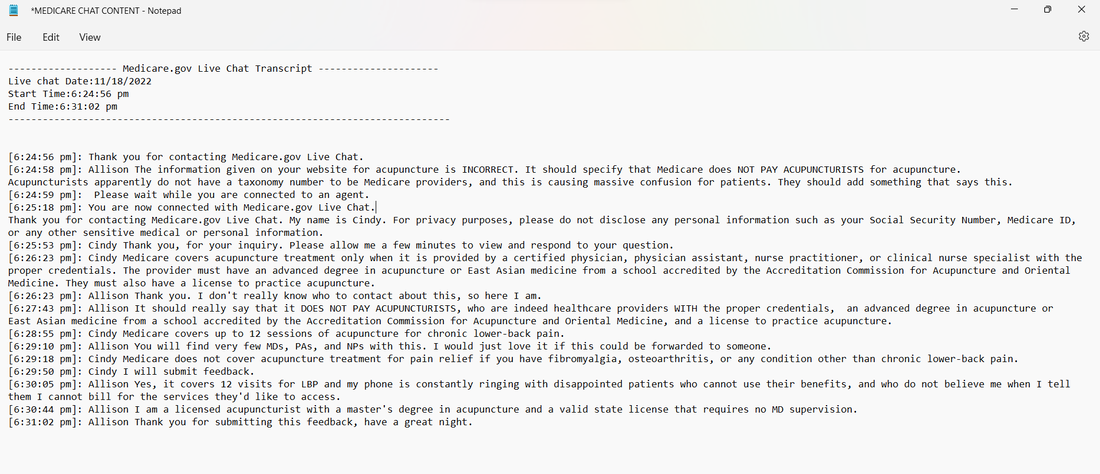
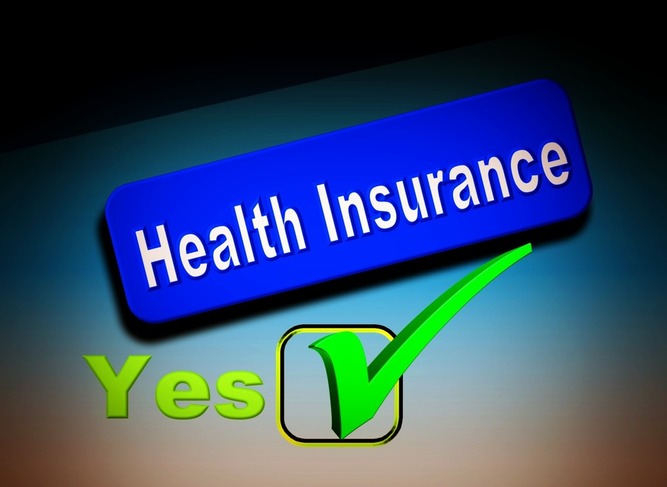
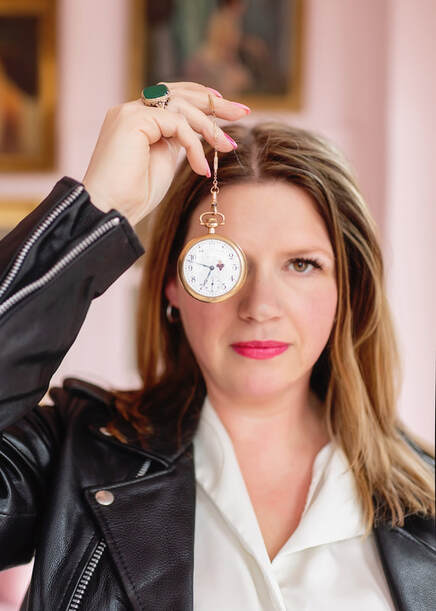
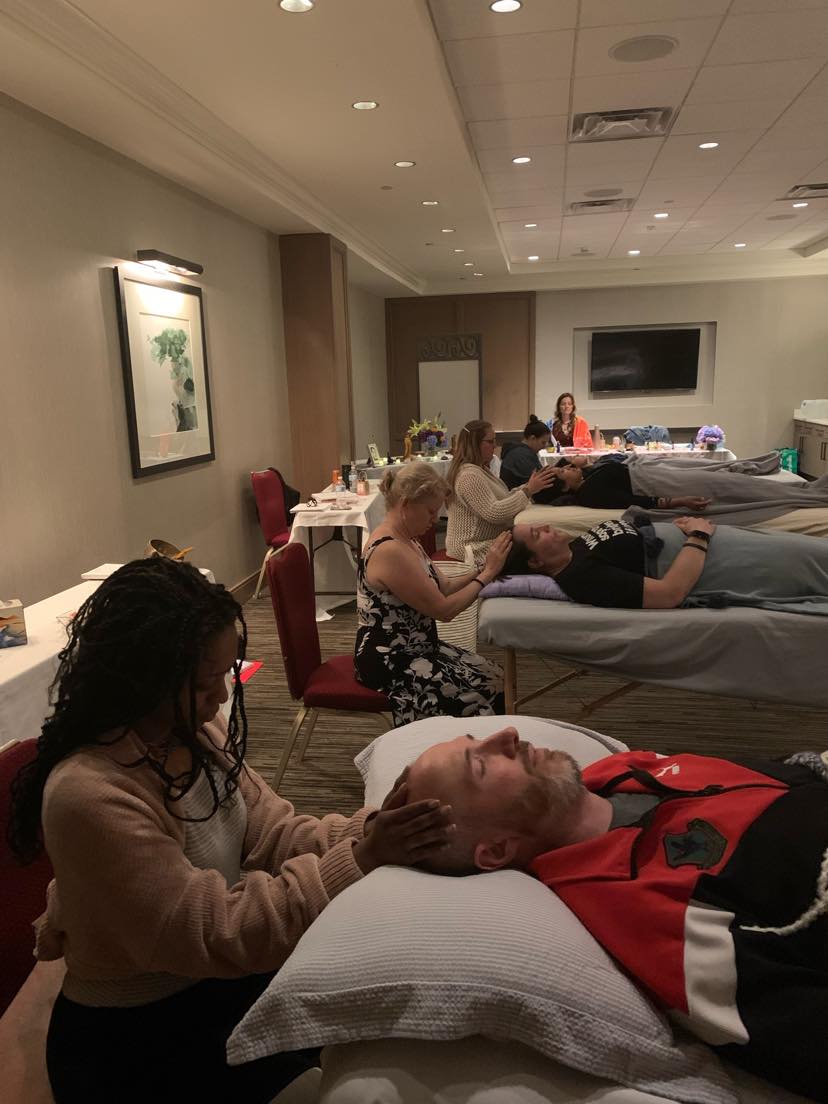
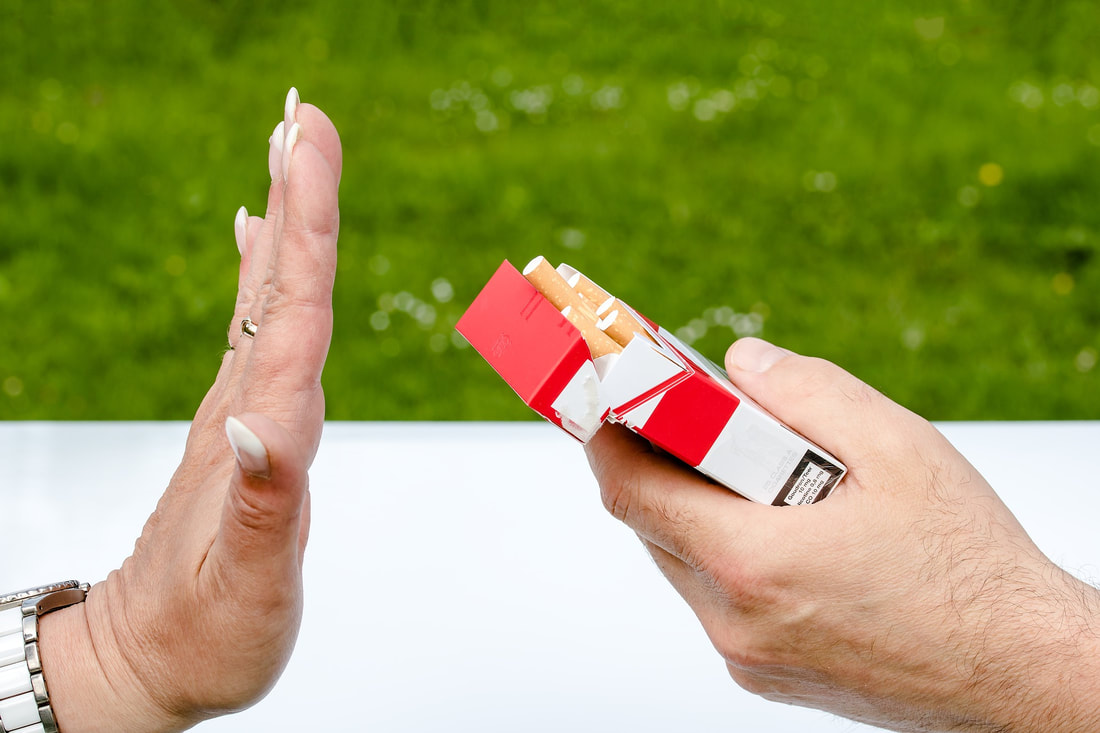
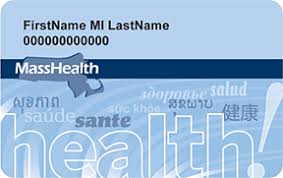
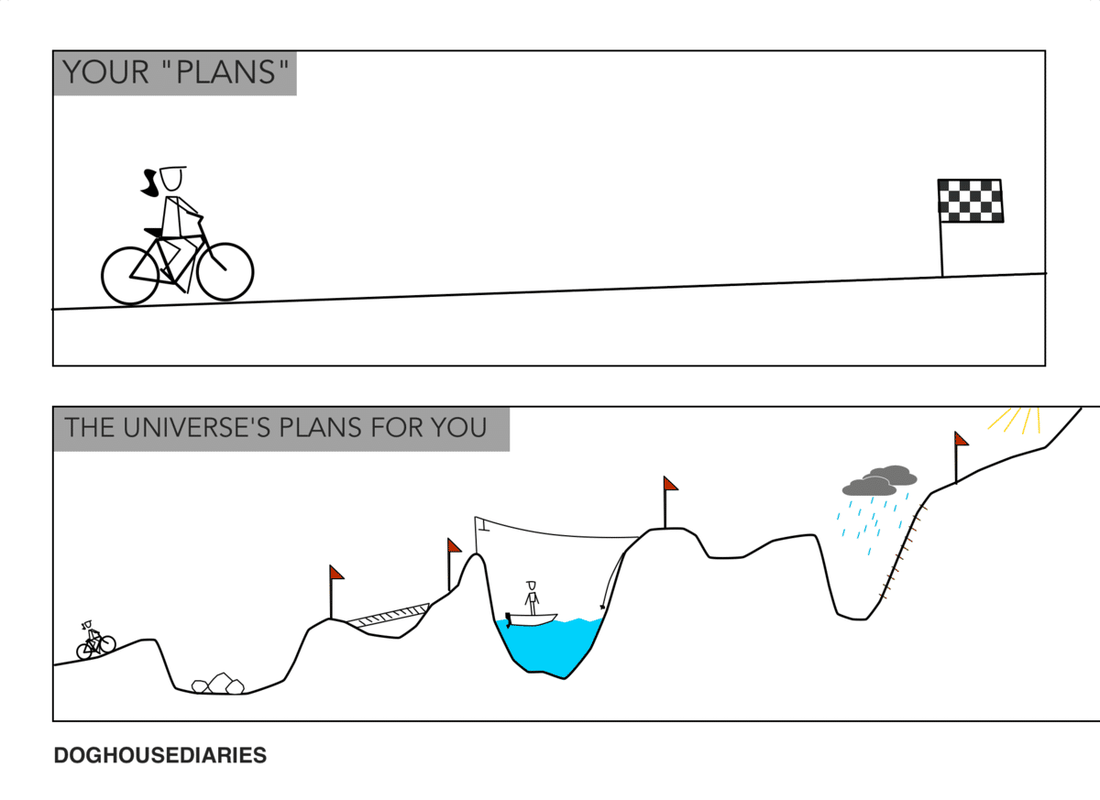



 RSS Feed
RSS Feed